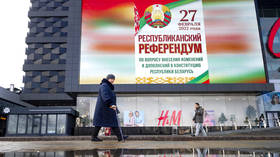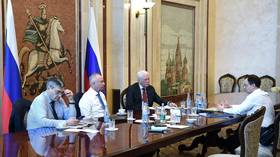Belarus carries out constitutional referendum

Belarus’ referendum on constitutional changes has been declared valid with more than 50% of the voters attending polling stations by midday, the local news agency Belta reported on Sunday.
The proposed amendments, if accepted by the Belarusians, would mean a drastic change to the country’s government structure. The new People’s Assembly – a council of the Belarus’ government with industry leaders and top officials – would be responsible for approving key state documents, including military doctrine and security policies.
The role of a president would officially weaken, and a presidential term would be limited to only two five-year periods. However, the current president, Alexander Lukashenko, who has been ruling the country for more than 27 years, would potentially be able to stay in power till 2035 since the rule would apply only to “newly elected presidents” and Lukashenko’s current term ends only in 2025.
The constitutional changes also suggest that a former head of state could become a lifetime member of the parliament’s upper house and would be provided with immunity when it comes to his actions taken during a presidential term.
There are also some changes concerning the president's right to impose a state of emergency, as well as some family law amendments.
All these revisions have been put to a referendum as a single package. The only question on the ballot papers is formulated as “Do you approve the changes and add-ons to the Republic of Belarus’ Constitution?” with two options of answer: “Yes” and “No.”
Lukashenko announced his decision to propose the constitutional changes in 2020, before mass protests in the country over the presidential elections, dubbed “falsified” by the opposition. Following the unrest, the president proposed to divide responsibilities between different government bodies. Later on, he hinted that he would not hold on to his seat, citing various factors that could allow him to resign.
Belarus' opposition leaders and some experts have expressed doubts over the proposed changes to the main law, saying that they are “imitative.”
The plebiscite comes as Belarus is playing a crucial role in negotiations between Russian and Ukrainian delegations, held amid the ongoing military conflict in Ukraine.













